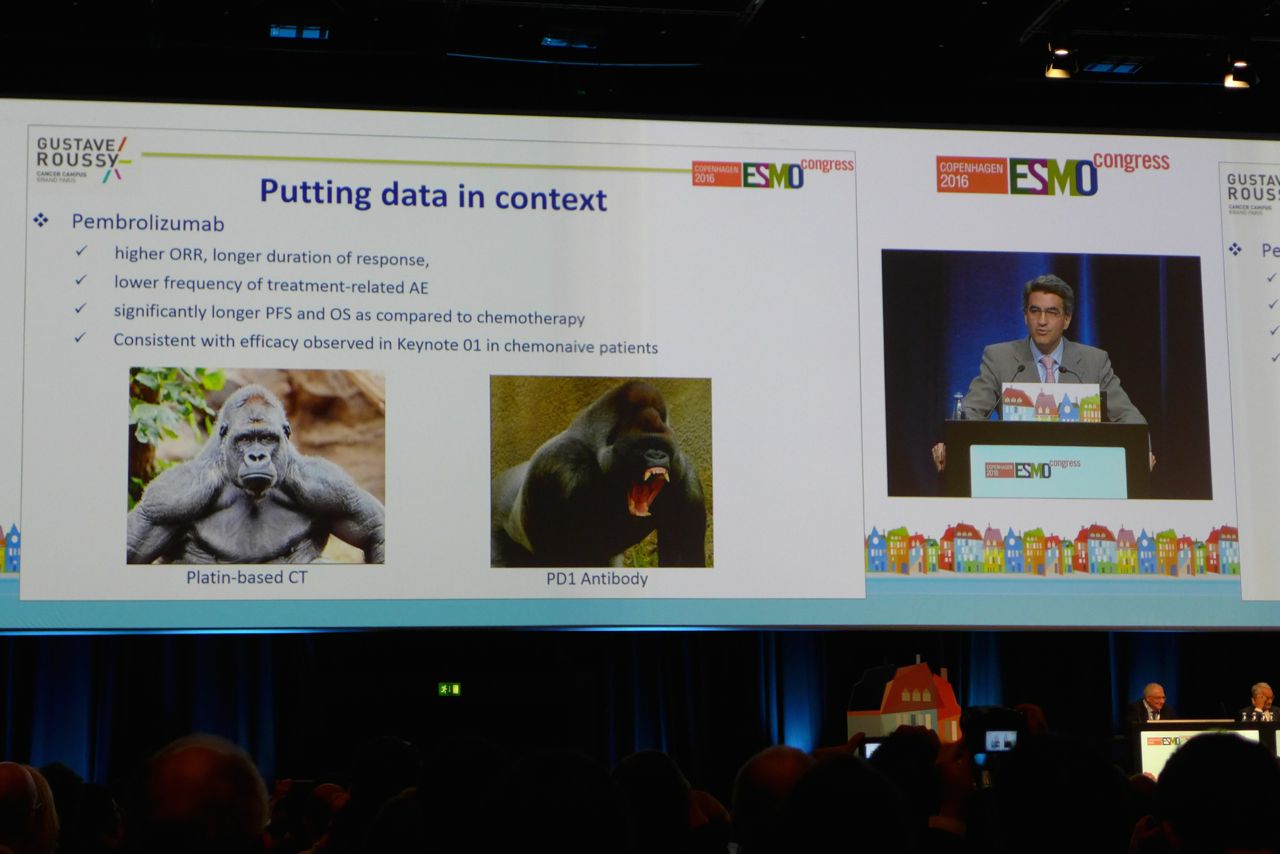ESMO16 Day 3 Daily Digest
Copenhagen – Day 3, Sunday at #ESMO16 was a day to remember on many levels. From being carried forward by a rush of people as a massive crowd was finally let into the Presidential Symposium…

Large crowd of delegates wait patiently to enter ESMO16 Presidential Symposium
…to hearing an outstanding discussion of data by one of Europe’s leading lung cancer experts, Professor Jean-Charles Soria (@jsoriamd). He was insightful, engaging, as well as funny in places and was a hard act to follow…
Well that’s one of the best discussions I’ve ever heard at a cancer conference! Brilliant, insightful & entertaining from @jsoriamd #esmo16
— Sally Church (@MaverickNY) October 9, 2016

Prof. Soria discussing KEYNOTE-024 data at ESMO 2016
I’ll take the PD1 gorilla. #LCSM https://t.co/YxD0UV18lV
— Faces of Lung Cancer (@LungCancerFaces) October 9, 2016
The end result was a day to remember, most significantly it was one where we heard data that will change the standard of care in front-line non-small cell lung cancer (NSCLC), with the expected approval of pembrolizumab (Keytruda) for patients whose tumors have a high expression of PD-L1 (50% or more).
We’re continuing our daily digest of highlights from sessions we attended at the 2016 European Society for Medical Oncology (ESMO) Congress here in Denmark.

The sun has not shone much here in Denmark during the Congress, the above photo of Nyhavn was taken just before the meeting started, but the data at ESMO16 has shone brightly with two more publications online in The New England Journal of Medicine to coincide with their presentation in Sunday’s Presidential Symposium:
Pembrolizumab versus Chemotherapy for PD-L1–Positive Non–Small-Cell Lung Cancer (NEJM link)
This is what a turning point in #LungCancer looks like. #LCSM https://t.co/gJTg9tcaPa
— H. Jack West, MD (@JackWestMD) October 9, 2016
Nivolumab for Recurrent Squamous-Cell Carcinoma of the Head and Neck (NEJM link).
This mini-series of daily digests over the 4 days of the Congress is intended to give subscribers a finger on the pulse on some of the buzz and conversation…. and occasionally an alternative perspective. We’ll be writing more detailed posts as part of a post-conference series.
In this post, @MaverickNY offers her topline impressions of the lung cancer data presented in the Presidential Symposium, how this will change how some patients are treated, and the resulting impact on the lung cancer landscape. Cancer Immunotherapy continues to drive changes in clinical practice, and is doing so at a very remarkable pace.
Subscribers can login to read more or you can purchase access…
This content is restricted to subscribers